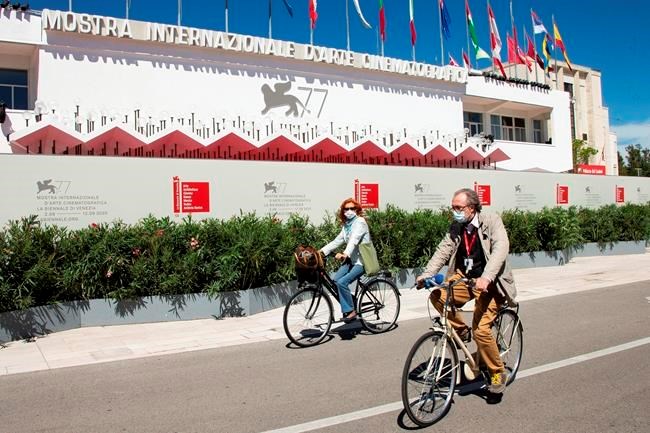SEOUL, Korea, Republic Of ā A film about a classical musicianās struggle to balance his career dreams and life in contemporary Mumbai will this week return India to the main competition at the Venice Film Festival for the first time in nearly two decades.
Writer-director Chaitanya Tamhaneās āThe Discipleā is among the 18-films selected for competition at the festival, which opened Wednesday. The last Indian film in competition was āMonsoon Weddingā by Mira Nair, which in 2001 won the festivalās top prize, the Golden Lion.
Tamhane spent four years researching, filming and editing āThe Disciple,ā which follows a would-be classical music vocalist who struggles to balance his craftās centuries-old traditions with contemporary Mumbai.
His film is slated to premiere Friday and despite travel restrictions and precautions due to the coronavirus pandemic, Tamhane plans to be there.
āItās been my dream, in a way to, you know, (to) be in competition at the festival,ā he said. āYou know, there would be no bigger high than presenting the film in person at Venice.ā
āI started off almost like a journalist, you know, attending concerts, interviewing musicians and hanging out in these spaces that they inhabit. So it took me two years to do the research, travel around the country and write the script,ā Tamhane, 33, said in an interview last month.
āIndian classical musicians ā there is a general perception that they are very serious and, you know, and they are very sort of solemn and
āIt was a process for me to arrive at that realization,ā he said.
As with his 2014 debut feature, āCourt,ā which takes a swipe at the Indian legal system through the trial of an aging folk singer, āThe Discipleā reflects his concerns about society.
"āCourtā was a lot more observational, a lot more objective. āThe Discipleā, I would say, is a lot more subjective,ā he said. āA lot of my observations about society and people, you know, do kind of seep into the script. And I feel not just me, everybody should be socially conscious and not be insular and live in a bubble, and react and engage with whatās happening around us.ā
āCourtā won Best Film in the Orizzonti section that runs parallel to the main Venice Film Festival competition. It also won Tamhane the Lion of the Future award given to best first films.
Tamhane said he can relate to people swimming against the tide.
āI kind of think that I am on the fringe, you know, of the mainstream film industry in India, which is so dominant,ā he said.
At 19, he took a jab at his homeland's film industry with his documentary āFour Step Plan,ā which addressed plagiarism in Indian films.
āSo when something is so popular, so dominant as an entire machinery, how do you survive? How do you find your own voice? How do you do something thatās not going to have, say, as big an audience and never going to make as much money or gain as much popularity? So then how do you keep going? How do you find your audience,ā he said.
Those themes also run through āThe Disciple.ā Tamhane said he doesnāt take for granted that heāll be able to continue to make movies.
āI may not get to make the kind of things that I want to make is a constant fear in my mind,ā he said. āEven when I was shooting this film every single day, I would remind myself that, you know, Iāve been blessed, Iām privileged that Iām getting to do this. And this might not be the case in a few years.ā
Juwon Park, The Associated Press



